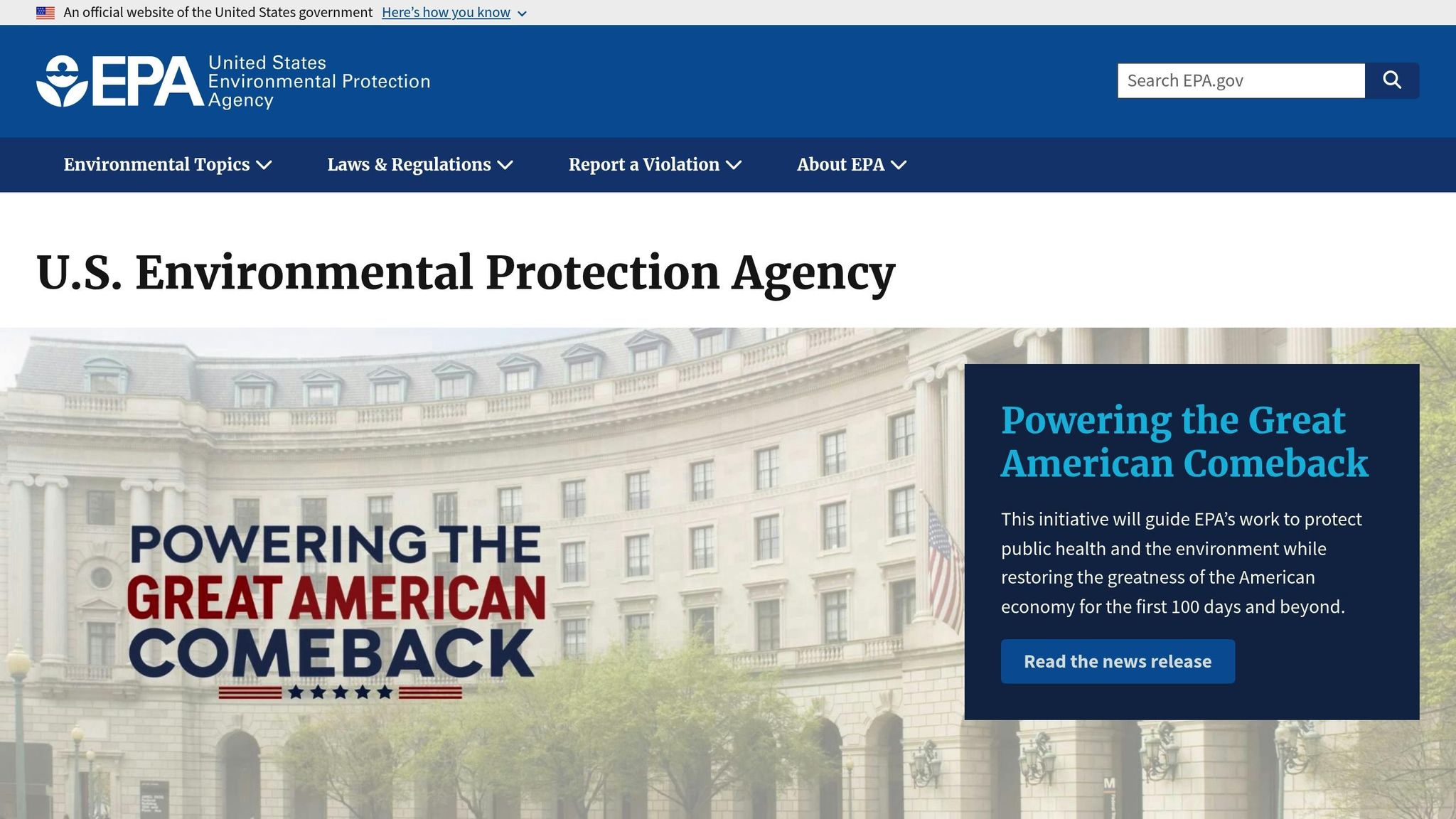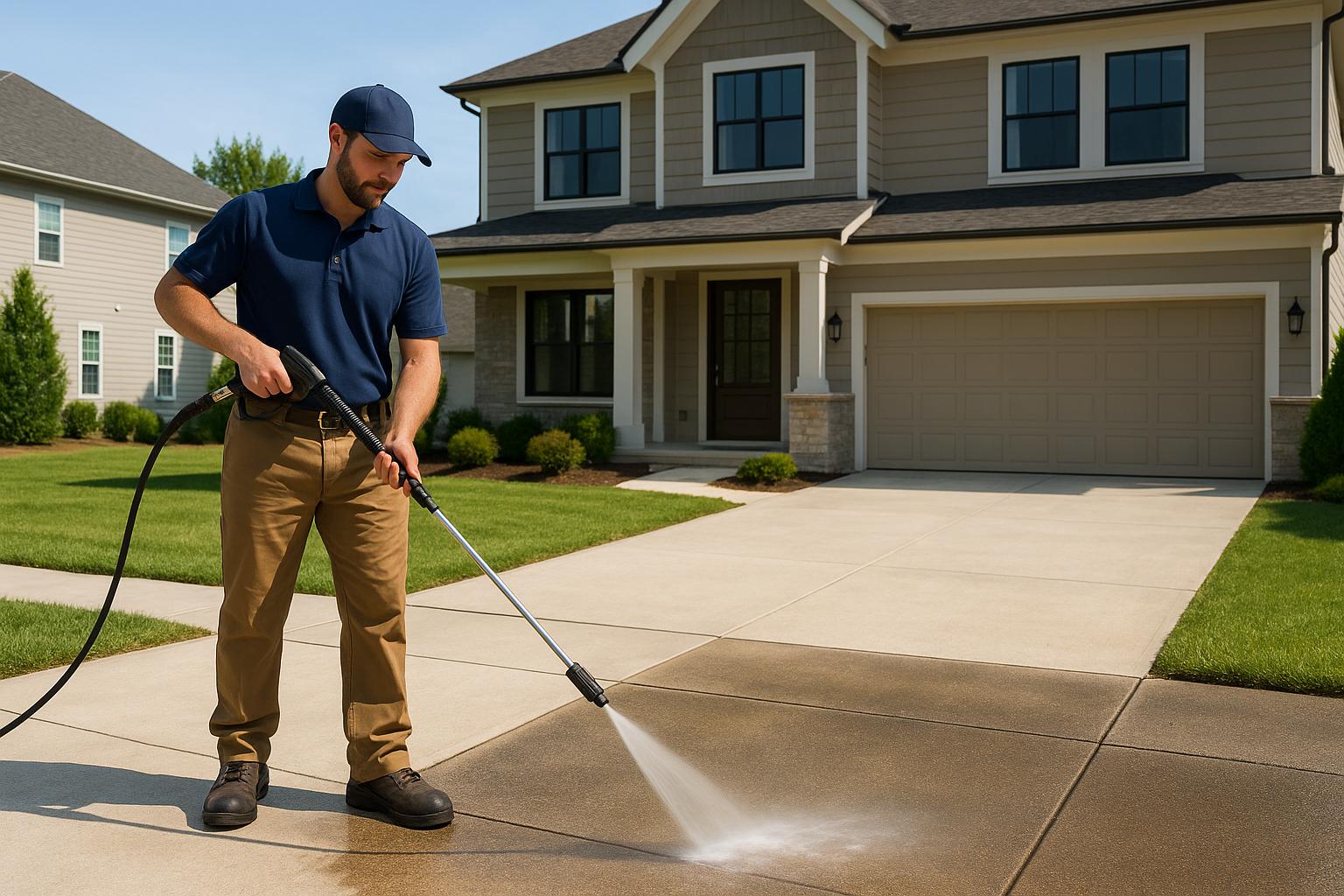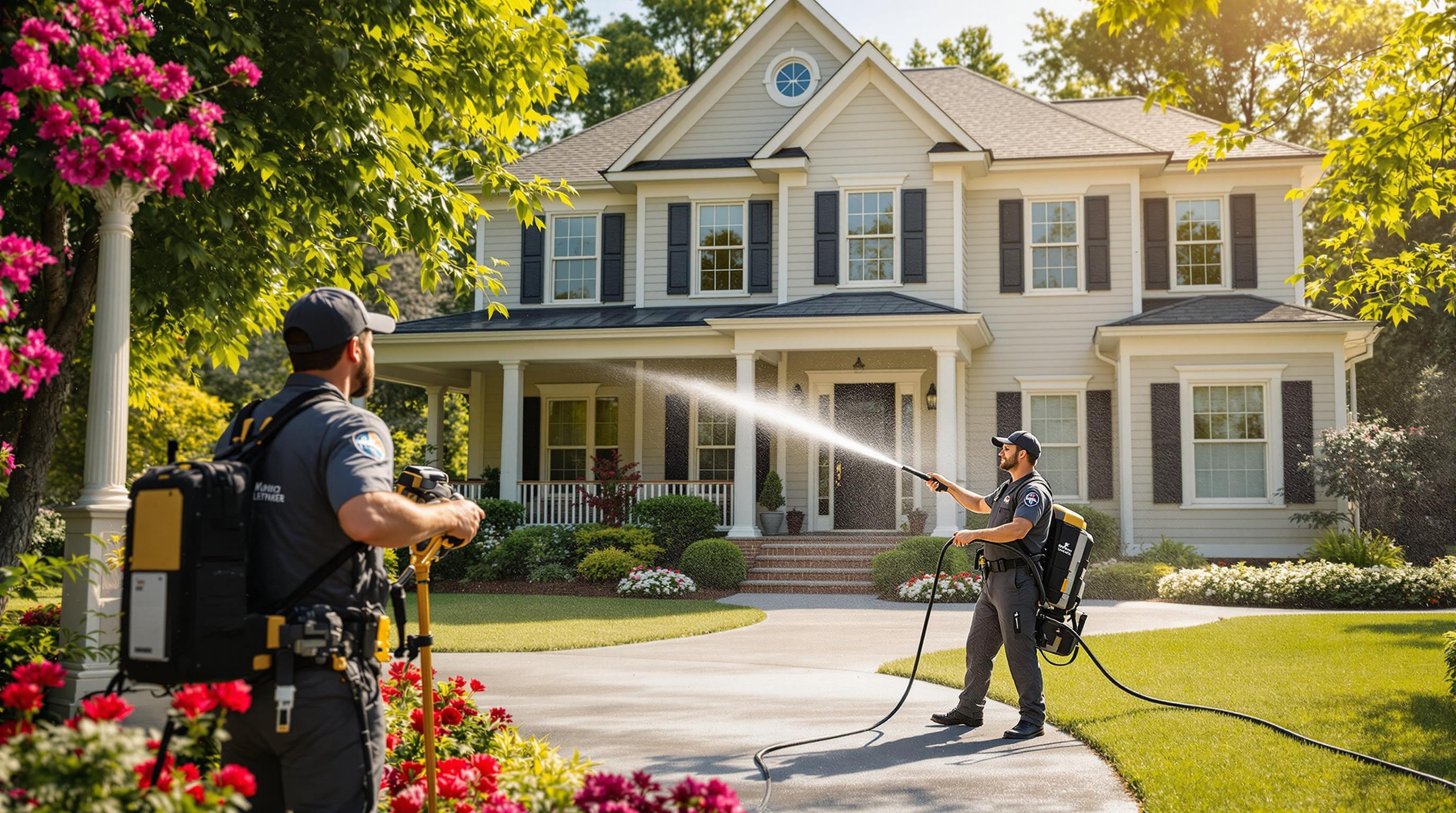Handling pressure washing wastewater the right way is essential to follow EPA regulations and protect water systems. Here's what you need to know:
- Key Rules: Wastewater is regulated by the Clean Water Act (CWA). Never discharge untreated water into storm drains, soil, or waterways. Check if you need an NPDES permit and follow state and local laws.
- Containment & Collection: Use barriers to control runoff and vacuum systems to collect wastewater.
- Disposal Methods: Pre-treat water before sewer discharge (with permits). If sewer access isn’t possible, controlled evaporation may be an option.
- Records & Training: Keep permits, logs, and test results. Train staff on wastewater handling and partner with certified professionals.
Proper management avoids fines, legal issues, and environmental harm. Follow these steps to stay compliant and protect local water systems.
Recover Wastewater and Stay Compliant with Landa Wash ...

EPA Rules and Legal Requirements

Pressure washing wastewater is regulated under the Clean Water Act (CWA), which is enforced by the EPA. To stay compliant, follow these guidelines:
Under federal law:
- Review the CWA's rules on discharging wastewater into surface waters and treatment systems.
- Determine if your activity requires a National Pollutant Discharge Elimination System (NPDES) permit.
- Avoid releasing untreated wastewater into storm drains, waterways, or directly onto the ground.
Beyond federal rules:
- State and Local Regulations: Contact your state or local water agencies to understand specific permitting and disposal requirements.
- Municipal Codes: Check local ordinances for rules on wastewater disposal, treatment standards, and equipment certifications.
- Pre-Treatment: Ensure wastewater undergoes any necessary pre-treatment before discharge, as required by local regulations.
Keep records such as permits, disposal logs, and test results to demonstrate compliance. Up next: methods for on-site containment and wastewater collection.
How to Contain and Collect Wastewater
Managing pressure washing wastewater starts with setting up barriers to direct runoff and using vacuum recovery systems to collect it effectively.
Barriers
- Set up continuous barriers around the work zone to guide wastewater to collection points and stop it from escaping the area.
Vacuum Recovery Systems
- For smaller or uneven areas, use portable wet/dry vacuums or surface cleaners with vacuum ports. On larger projects, opt for truck-mounted or high-capacity vacuum units.
Check out the next section for detailed steps on disposing of wastewater safely.
sbb-itb-8e2a680
Safe Wastewater Disposal Steps
Follow federal and local regulations when disposing of collected wastewater.
Sewer System Disposal
Before discharging into a sewer system, consult your local wastewater authority.
- Get written approval or necessary permits.
- Pre-treat the wastewater by removing solids and adjusting pH levels.
- Schedule discharges according to the facility's guidelines.
Make sure to check local requirements for filtration systems and effluent testing.
Controlled Evaporation
If sewer discharge isn’t allowed, some areas permit onsite evaporation:
- Use a containment pad that prevents leaks, avoid nearby drains, and monitor weather conditions.
- Ensure all wastewater has fully evaporated before removing the setup.
What Not to Do
Never dispose of wastewater in storm drains, on bare soil, or in surface waters.
Improper disposal can lead to legal penalties, fines, and mandatory cleanup efforts.
Next: Learn about record-keeping, worker training, and professional guidance for staying compliant.
Documentation, Training, and Expert Support
Keep thorough records, provide staff with proper training on regulations, and work with certified professionals to ensure compliance and safeguard the environment.
Key Records to Maintain
- Permits, disposal logs, and test results: Store these documents securely for easy access.
- Employee training: Ensure technicians understand EPA wastewater regulations and know how to handle spills effectively.
- Certified providers: Partner with insured and certified professionals, such as Pressure Washing Cary NC, for specialized tasks.
Conclusion
Managing wastewater correctly during pressure washing isn't just about following the law under the Clean Water Act - it's about protecting water systems. To stay compliant and avoid penalties, make sure to: use proper containment, collection, and disposal methods; keep records like permits, test results, and training logs; and adhere to local discharge rules. For peace of mind, consider hiring Pressure Washing Cary NC's certified and insured team to handle wastewater management and meet EPA standards.
FAQs
What happens if pressure washing wastewater is not disposed of properly?
Improper disposal of pressure washing wastewater can lead to serious environmental and legal consequences. Wastewater often contains contaminants like dirt, oil, grease, chemicals, and debris that can pollute local waterways if not handled correctly. This can harm aquatic life, disrupt ecosystems, and even pose risks to public health.
Additionally, failing to follow proper disposal practices may result in violations of EPA regulations or local environmental laws, potentially leading to fines or legal action. To avoid these issues, it's crucial to collect, contain, and dispose of wastewater in compliance with all applicable standards. If you're unsure how to handle this, consider hiring a professional service like Pressure Washing Cary NC, where experts ensure all cleaning processes are environmentally responsible and compliant with regulations.
Do I need an NPDES permit for my pressure washing activities?
Determining whether you need an NPDES (National Pollutant Discharge Elimination System) permit depends on how and where your pressure washing wastewater is discharged. If the wastewater enters storm drains, natural water bodies, or other areas where it could affect the environment, you may be required to obtain a permit to comply with EPA regulations.
To ensure compliance, check with your local environmental agency or municipality, as requirements can vary by location. When in doubt, consult a professional pressure washing service like Pressure Washing Cary NC, which follows all proper wastewater collection and disposal practices to meet regulatory standards.
How can I train my team to handle pressure washing wastewater properly and stay compliant with regulations?
Training your team on proper wastewater handling is essential for maintaining compliance with EPA regulations and protecting the environment. Here are some key steps to consider:
- Educate on EPA Guidelines: Ensure your team understands the Clean Water Act and local wastewater disposal rules. Highlight the importance of preventing wastewater from entering storm drains.
- Demonstrate Proper Techniques: Train staff on using containment tools like berms, vacuums, and filtration systems to collect wastewater effectively.
- Provide Hands-On Practice: Conduct practical sessions where employees can practice setting up containment systems and disposing of wastewater at approved facilities.
By investing in proper training, you can ensure safe, compliant pressure washing practices. If you'd rather leave the job to professionals, Pressure Washing Cary NC offers expert services that adhere to all wastewater handling regulations, giving you peace of mind.


